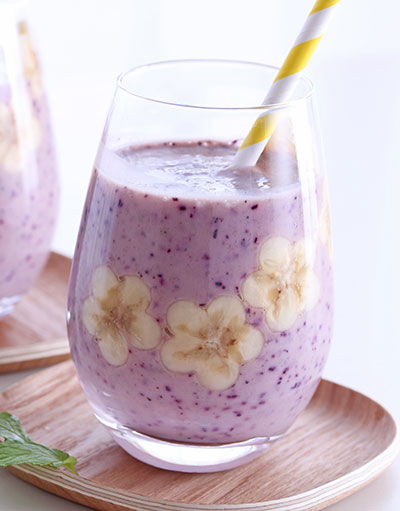By Jane
Make Life Easy
For years I’ve had problems sleeping – until I discovered these herbs. Learn which herbs could help you fall asleep. They worked for me.
I give talks on herbs regularly and the one question I get asked all the time is, ‘Which herb can I take for sleep?”
That’s a hard question to answer in one sentence, let alone one word (the name of just ONE herb) because it depends on the person and the reason WHY that person can’t sleep in the first place. Are they stressed? Are they anxious? Are they depressed? Do they have busy minds? Are they low in melatonin? Are they low in magnesium?
Depending on what’s going on, each individual will utilise a particular herb or herb combination differently depending on their own particular situation.
For years I have not been able to sleep well. I took everything under the sun that claimed to be a good sleep remedy. Valerian, hops, chamomile, etc. Valerian had the opposite effect on me. It took me a while to realise that the wired effect that I was experiencing at bedtime (like I’d just drunk 10 cups of coffee) was due to the valerian I just took. When I stopped taking it, the wired effect stopped too. While valerian is well known as a treatment for anxiety and insomnia (it’s often described as the herbal tranquilliser), not everyone can take it. Unfortunately I’m one of those people.
You can learn more about valerian and whether it works for you in my online herb course here
I took tart cherry tablets, but because I wasn’t low in melatonin it had no effect.
I tried lavender. Nothing. I tried kava (in tablet form). This definitely had a relaxing effect on me but it didn’t help me sleep (nonetheless, this is a very good herb for stress).
Which begged the question:
Why were none of these supposed sleeping herbs working for me?
Was it my pillow? Over the years I’ve tried every pillow out there. My loft is now like a pillow graveyard (if anyone needs a pillow…). Was it my bed? I had had it for a while but the mattress was good quality and I certainly didn’t feel uncomfortable while in bed.
I did have a neck issue, which I’ve had for years, but I was certain it wasn’t that that was keeping me awake at night. There were no twinges or the likes. I didn’t wake up with pain. Occasionally I would get a headache when I hit the pillow (hence the collection of pillows) if it wasn’t the right height or fullness, but once I found the right pillow for me (a pillow made of bamboo), that didn’t seem a problem.
OK, yes, I did work seven days a week. I was probably stressed. OK, I was stressed. I had lots of deadlines. At one stage I was writing 12 gardening articles a month for various newspapers and magazines (and that’s just the gardening ones – there were a host of others as well), plus running and maintaining a separate media business, as well as running workshops and giving talks, and working for a major international publisher. Stress could be keeping me awake. I went to the doctor about it. I didn’t think I was depressed, but the doctor told me I was. I felt stressed, for sure. Not depressed. But she put me on an anti-depressant anyway.
Over time, it most definitely helped with the stress situation, but I still wasn’t sleeping well. Even though I constantly woke up throughout the night, I certainly didn’t wake up with things on my mind (a sign of stress). In fact, I didn’t have anything on my mind when I woke up. I simply woke up several times during the night, rolled over and went straight back to sleep. Surely that meant I wasn’t stressed. I certainly didn’t feel stressed.
I found it hard to get to sleep in the first place. It would sometimes take me an hour, or more. My mind was whirring with things I had to do, or things I’d done during the day.
Wait. Back up. My mind was whirring. It was busy. Probably because I’m a busy person. Maybe it hadn’t had time to shut off. I worked seven days a week after all, and they were long days. From 9 in the morning to 10 or 11 at night. There was no time to wind down. But I did read for about an hour before I went to sleep. But even with an hour’s reading time I still didn’t go to sleep straight away. And I kept waking up during the night.
Now, at this stage, you’re probably thinking, Jane, it’s obvious – you’re working seven days a week! But I didn’t think it was that so much. I’ve always been a hard worker and been able to maintain long work hours (yes, I’m a workaholic). So I went back to my herbs.
First, I tried chamomile (Matricaria recutita) in the form of chamomile tea. I love chamomile. For me, it most definitely is a relaxing herb. While it didn’t so much help me with sleep, it is a calming herb and I find it great for stress (sipped on during the day as well as before bedtime). But you have to make sure you choose your chamomile wisely because there are several grades of chamomile available (I grow my own but I top it up with quality store-bought chamomile when I run out).
The cheaper, lower quality chamomile you buy from supermarkets was once described to me as floor scrapings. For a pharmacopeial quality you want the chamomile flower that consists of the capitula (infloresence) separated from leaf and stem. You don’t know what you’re getting in the supermarket packs, but more than likely it’s machine-harvested chamomile with stalks and flowers (it’s just the flowers you want). This material does not conform to pharmacopeial standards.
Incidentally, as far as calming herbs go, lemon balm (Melissa officinalis) is another good one that can be taken as a tea or tincture. It is often used for nervous sleeping disorders, along with other complaints. One double-blind randomised trial found it comparable to the benzodiazepine oxazepam in treating anxiety.
You can learn more about chamomile and lemon balm in my online herb course here
Anyway, chamomile worked quite well. It relaxed me and in stressful times it calmed me down.
I also started taking magnesium, and this worked brilliantly to relax me at bedtime. It did help me sleep better too. I stopped taking it for a period and my sleeping patterns became worse. When I started taking it again, I slept better – but still not a full night’s sleep.
Enter passionflower and skullcap.
Passionflower (Passiflora incarnata) is popular among herbalists for general sleep disturbances, perimenopausal sleep disturbances, depression, and anxiety. Skullcap (Scutellaria lateriflora) is used for sleep problems as well as nervous disorders. It’s also noted for quietening a chattering mind. That, for me, was the clincher. If I could stop that interminably rowdy brain of mine, I was surely on to a winner.
So did it work?
Yes!
The 1996 British Pharmacopoeia identifies skullcap’s action as a mild sedative. Suggested quantities of the dried plant (skullcap) are 1-2g or by infusion three times a day (3-6g daily total). The recommended total daily dose of passionflower is 4-8g. (You might note that one herbal teabag from the supermarket is about 1g).
Taken together, they worked very well to shut down my nattering brain and send me off to sleep. I took one very strong dose in tea form an hour before bedtime and by the time I got there I was already very sleepy. I read, as usual, but not for long as I was finding it hard to keep my eyes open. That often used to happen anyway, but when I turned off the light I would instantly be wide awake again, mind achattering. Not this time. For me, it seems, skullcap and passionflower are the answer.
Now, I must confess, this is not the most pleasant tasting tea, so I added a couple of fresh stevia and lemon balm leaves to my brew to make it more palatable. If it helps me to sleep well, them I’m happy to take it. (Just to clarify: passionflower on its own is a very pleasant tea; skullcap is downright disgusting.)
For yourself, I would suggest trying each herb individually, possibly starting with valerian. It is best to try each herb one at a time, rather than in a formula, in order to tell which herb works best for you. Later you can combine herbs that work for a synergistic effect, once you are familiar with the particular effects of each herb.
What might work for you, I wonder? Have you had any experiences with herbs? Let me know in the comments below.
You can learn more about herbs for sleeping and what might suit you in my online herb course here
I buy my herbs online from Cottage Hill Herbs.
Jane is Editor of Sweet Living magazine; Editor of HerbNews (the quarterly magazine for the NZ Herb Federation); Herb columnist for NZ Gardener magazine; and Weekly gardening columnist for Waikato Times, Southland Times, Manawatu Standard, Taranaki Daily News, Nelson Mail, Marlborough Express and Timaru Herald. She frequently gives talks and runs workshops across the country.
 My Favourites
My Favourites











An interesting read, Jane. I too have sleep problems, waking numerous times a night. I buy chamomile tea from the supermarket but had no idea that the quality might not be the best. Maybe I should buy a health store brand? Chamomile does work quite well for me though not always.
Hi Tracey
Not all supermarket brands are bad – some of these may work well for some people, particularly if they needed only a small dose. I prefer the brands from the health shops. One brand that I particularly like for chamomile is Planet Organic, and it’s reasonably priced too. Make a strong brew – let it infuse for at least 10 minutes. In actual fact, I let mine seep, AND leave the bag in while I drink it. Though some people might not like it so strong.
🙂
Jane